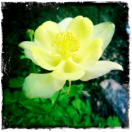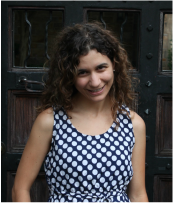ASSAY: A JOURNAL OF NONFICTION STUDIES
2.1
2.1
September 2001“The weight of pain has no conversion. Liters, ounces, kilos, tons . . . nothing can measure the tear of a broken heart.”
These are the opening lines of a short story I wrote, in a torrent of emotion, on September 12, 2001. I was nineteen years old, trying to make sense of the insensible, in the only grasping way I knew how—by writing. As I sat in my fiction professor’s office weeks later, he held the story in his hands and said, with a smile and his head cocked to one side, “Dear, we all like to write about our feelings when something like this happens . . .” There was a “but” after this, but I don’t remember what followed. What I do recall is how I heard it: “But not like this,” “but this is drivel,” “but who are you to write about this?” What do you know? Stick to what you know. He placed the story back in my folder, and we never discussed it further. After the meeting with my professor, I felt the deep humiliation and regret for having shared something so personally responsive, that I was supposed to feel, it seemed, so from then on, everything I wrote concerned college-aged females and their toils with boyfriends and roommates, introduced by a disclaimer: “I know this needs a lot of work” or “I know this story is cheesy, but—” (“Your word, not mine,” the teacher would say later, as he applied the word “cheesy” in a conference.) September 2011I suspect that teachers, like parents, have a tendency to unwittingly bequeath their unresolved issues to the next generation, and I’m as guilty of this as any other. Around the ten-year anniversary of 9/11, I’d been teaching writing at the college level for several years. My freshman composition students were developing oral presentations, for which one of them had chosen to study the media’s coverage of 9/11. She asked me after class one day if she could, or should, show graphic video footage from the attacks, “or would it be too upsetting?” I, the authority, stared at her silently for a moment before saying, “I don’t know,” and together we pondered the question. Eventually, we decided she should show some footage, but only after offering what’s become known as a “trigger alert” beforehand.
The following week, she played a short clip of the towers collapsing, with audio of panicstricken voices fleeing the scene. Seeing and hearing it in class like that—co-witnessing it within the classroom community, with my students—sparked something in me. I went home that night and lay in bed with my laptop, scouring YouTube, gluttonously consuming the harrowing images I had somehow managed to avoid for ten years. My husband came home and saw me—with our dog at the foot of our unmade bed, chin on paws—and asked me what I was doing. When I told him, he asked me why, and I said I didn’t know—because I didn’t—as I remained transfixed in a frightening mix of horror and relief. After some reflection, the “why” has become clearer: in part by stunting my own urge to write about 9/11, I had to a great extent avoided engaging with it at all. I’d internalized a message that I wasn’t authority enough to speak—or even think, really—about complicated political matters. And worse, as a teacher, I was perpetuating the same cycle of avoidance, steering clear of difficult subject matter in the classroom. By finally inviting it back in ten years later, I’d reverted to a less intellectualized, and more primally emotional, state—from which, fortunately, I would begin to build a more articulate frame of reference.
|
Click here to download a printable PDF with Works Cited.
|
Ioanna Opidee teaches writing and literature at Fairfield University, where she earned an MFA in Creative Writing. Her work has appeared in Drunken Boat, Lumina, Weave, and other publications. As a freelance journalist, she is a regular contributor to University Business magazine and most enjoys writing about music, art, culture, and education.
|
Related Works
|
Megan Culhane Galbraith
Animals as Aperture: How Three Essayists Use Animals to Convey Meaning and Emotion 2.1 Articles |
Crystal N. Fodrey
Teaching CNF Writing to College Students: A Snapshot of CNF Pedagogical Scholarship 2.1 Pedagogy |

